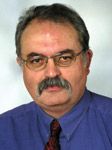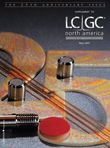Corporate Retrospective 2007: Bischoff
In 1982 when the first issue of LCGC entered the chromatography laboratories, BISCHOFF Chromatography was already 2 years old.
In 1982 when the first issue of LCGC entered the chromatography laboratories, BISCHOFF Chromatography was already 2 years old. In the following years German-engineered column hardware was setting standards especially in Europe. Step by step, BISCHOFF developed a complete range of instruments like pumps, detectors, and consumables for HPLC. LCGC was always the most read journal because new developments from around the world were discussed in press releases and scientific articles. Today it is the No. 1 journal for all people involved in the business of modern separation technology. LCGC reported all the news about columns, stationary phases, and instruments. Even our ultra pure silica line and our sub-2-micron material for HPLC were mentioned in many articles in the different issues over the years. Now, we are in the middle of the launch of our unique phase optimized liquid chromatography where HPLC is facing a real new way to develop or to optimize methods. Just like LCGC has carefully selected the papers that were published over the years, we are selecting the stationary phases, which the user can combine as segments in our patented system to get an outstanding separation.

We have to thank LCGC for the outstanding number of leads that were created by press releases, ads, and articles.
We wish LCGC and all the people working for LCGC all the best and a bright future.

Klaus Bischoff
Klaus Bischoff
Managing Director
BISCHOFF Chromatography
Leonberg, Germany

Determining Neurotransmitters in Spinal Cords with UHPLC
February 18th 2025Researchers at Jilin University (Changchun, China) developed a highly sensitive, rapid, and accurate method for analyzing neurotransmitters (NTs) in rat spinal cord tissue. Ultra-high performance liquid chromatography-triple quadrupole tandem mass spectrometry (UHPLC-QqQ-MS/MS) in conjunction with ultra-ionic liquid dispersive liquid-liquid microextraction (UA-MIL-DLLME) were used to extract NTs for analysis.
The Next Frontier for Mass Spectrometry: Maximizing Ion Utilization
January 20th 2025In this podcast, Daniel DeBord, CTO of MOBILion Systems, describes a new high resolution mass spectrometry approach that promises to increase speed and sensitivity in omics applications. MOBILion recently introduced the PAMAF mode of operation, which stands for parallel accumulation with mobility aligned fragmentation. It substantially increases the fraction of ions used for mass spectrometry analysis by replacing the functionality of the quadrupole with high resolution ion mobility. Listen to learn more about this exciting new development.
Revolutionizing LC-MS with Next-Gen Separation for Cyclic Peptide Analysis
February 17th 2025Cyclic peptides, known for their stability and high specificity, are promising therapeutic agents in the fight against cancer, infections, and autoimmune diseases. However, developing effective cyclic peptides presents numerous challenges, including poor pharmacokinetics, efficacy, and toxicity. Traditional methods like liquid chromatography tandem-mass spectrometry (LC-MS/MS) often struggle with resolving isomeric linear peptide metabolites, posing significant risks in safety, efficacy, and regulatory approval. In this paper, Komal Kedia, PhD, will share how she leveraged MOBIE’s high-resolution ion mobility-mass spectrometry (IM-MS) system to achieve a 72% reduction in run times, 200% greater resolving power, and enhanced accuracy in identifying “soft spots” prone to enzymatic degradation.
























